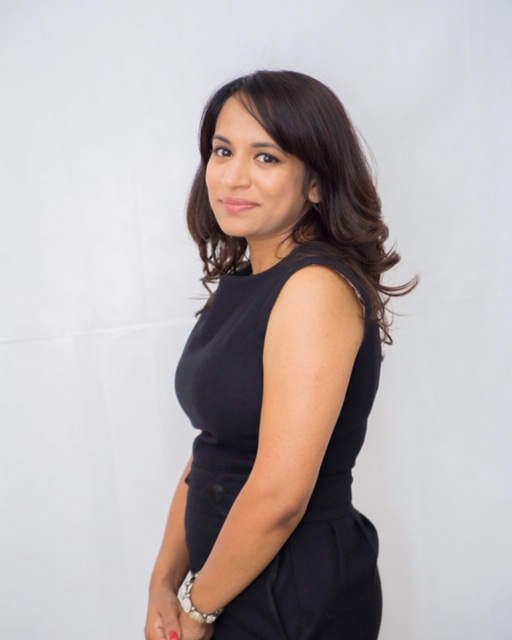Accent bias: Is yours a problem and should you change it?
Speech therapist Shermeena Rabbi explains why accent bias is still a thing and what to do if you're being judged negatively


Celebrity news, beauty, fashion advice, and fascinating features, delivered straight to your inbox!
You are now subscribed
Your newsletter sign-up was successful
Speech therapist Shermeena Rabbi explains why accent bias is still a thing and what to do if you're being judged negatively
Have you ever been made to feel the way you speak is a source of shame? Whether you’ve been mocked by work mates, noticed people struggling to understand you, or even been taken to one side about the way you talk, if you think people are judging you negatively over it, sadly you could be right. Accent bias is very much alive and kicking. Research by academics from the University of Manchester found last year that accent bias against broad regional accents can be a barrier to social mobility. Could the way you talk be costing you your career?
The issue accent bias, it seems, is less about regional accents and more about any deemed to be ‘broad’ – as opposed to ‘general’ or ‘neutral’ varieties of the same accent. Some people are even turning to elocution experts to help soften their accents. Speech therapist Shermeena Rabbi, director of speech and language consultancy Unlocking Language, says “Clients are concerned their strong regional accent is preventing them getting the job when they start speaking at a job interview.”

Does this mean that being perceived more professionally means hiding your authentic accent? And what if your accent happens to be foreign? However fluently you may speak English, non-native speakers often face an uphill struggle to be heard and taken seriously when it comes to accent bias. But should you try to mask it? Not at all, says Rabbi. “Your accent is your identity and you shouldn’t try to change it, which is actually very difficult to do. Improving your speech is more a case of communicating more confidently and with greater clarity.”
And this has never been more important than now. How we come across verbally has been highlighted by being on video calls all day and we may feel people view us in a different way. “Of course we’re looking at ourselves in this new virtual world and hearing how we speak. But while we may fear it’s our accent that jars, it’s actually a lack of clarity that tends to be the real problem. Slowing down and refining your communication is the solution - but not changing your accent,” says Rabbi. Try her seven key action points for communicating more clearly - whether you’re from Birmingham or Bangladesh.
How to combat accent bias
1. Slow down
“When you naturally slow down your speech you automatically enunciate your words more clearly, rather than mumbling or swallowing your words. And by saying the words clearly, you’re getting your point across more powerfully,” says Rabbi.
2. Powerful pauses
"We’re sometimes afraid of pauses and awkward silences, but actually they can be really powerful and allow you to focus on the clarity of your speech," says Rabbi. “Give yourself those two or three seconds to breathe and think about what you want to say, while giving your audience the chance to digest what you’ve already said. Then proceed to your next point.”
Celebrity news, beauty, fashion advice, and fascinating features, delivered straight to your inbox!

3. Speech therapy
If there are certain sounds you struggle to pronounce, it’s a good idea to get some speech therapy in order to improve it. “Some people struggle with the 'th' sound, and this can be corrected - and make an enormous difference to the way you come across,” says Rabbi.
4. Projecting your voice
Diaphragmatic breathing allows you to project your voice and naturally slow down, giving your speech greater clarity. “And make sure you have a decent work chair to help improve your posture, which is a crucial part of voice projection,” says Rabbi. An adjustable standing chair could make a huge difference, stopping you slouching.
5. Relax your tone
Sometimes when people have strong accents they try so hard to sound ‘right’ that they end up getting too tense and sounding monotonous. “It’s important to be relaxed rather than focussing on sounding ‘right'," says Rabbi. "Accent is identity and it brings diversity to a world that’s changing - and that’s important."
6. Think clarity
Focus on speaking clearly and don’t be self conscious. “Your accent will naturally soften when you slow down, take the time to breathe more and enunciate. Instead of thinking ‘I have an accent issue, think ‘I have to communicate more clearly'."
7. Get some practice
Try doing some tongue twisters to help your tongue move differently and improve enunciation. And check out powerful orators - such as, Malcom X, Mahatma Gandhi, Michelle Obama and Barack. Work out what you like about their communication style. How can you implement it in yours? Try out these two tongue twisters a few times a day. Peter Piper picked a peck of pickled peppers A peck of pickled peppers Peter Piper picked If Peter Piper picked a peck of pickled peppers Where’s the peck of pickled peppers Peter Piper picked?
Betty Botter bought some butter But she said the butter’s bitter If I put it in my batter, it will make my batter bitter But a bit of better butter will make my batter better So ‘twas better Betty Botter bought a bit of better butter.
* Speech therapist Shermeena Rabbi, director of speech and language consultancy Unlocking Language unlockinglanguage.co.uk
Maria Coole is a contributing editor on Marie Claire.
Hello Marie Claire readers – you have reached your daily destination. I really hope you’re enjoying our reads and I'm very interested to know what you shared, liked and didn’t like (gah, it happens) by emailing me at: maria.coole@freelance.ti-media.com
But if you fancy finding out who you’re venting to then let me tell you I’m the one on the team that remembers the Spice Girls the first time round. I confidently predicted they’d be a one-hit wonder in the pages of Bliss magazine where I was deputy editor through the second half of the 90s. Having soundly killed any career ambitions in music journalism I’ve managed to keep myself in glow-boosting moisturisers and theatre tickets with a centuries-spanning career in journalism.
Yes, predating t’internet, when 'I’ll fax you' was grunted down a phone with a cord attached to it; when Glastonbury was still accessible by casually going under or over a flimsy fence; when gatecrashing a Foo Fighters aftershow party was easy-peasy-lemon-squeezy and tapping Dave Grohl on the shoulder was... oh sorry I like to ramble.
Originally born and bred in that there Welsh seaside town kindly given a new lease of life by Gavin & Stacey, I started out as a junior writer for the Girl Guides and eventually earned enough Brownie points to move on and have a blast as deputy editor of Bliss, New Woman and editor of People newspaper magazine. I was on the launch team of Look in 2007 - where I stuck around as deputy editor and acting editor for almost ten years - shaping a magazine and website at the forefront of body positivity, mental wellbeing and empowering features. More recently, I’ve been Closer executive editor, assistant editor at the Financial Times’s How To Spend It (yes thanks, no probs with that life skill) and now I’m making my inner fangirl’s dream come true by working on this agenda-setting brand, the one that inspired me to become a journalist when Marie Claire launched back in 1988.
I’m a theatre addict, lover of Marvel franchises, most hard cheeses, all types of trees, half-price Itsu, cats, Dr Who, cherry tomatoes, Curly-Wurly, cats, blueberries, cats, boiled eggs, cats, maxi dresses, cats, Adidas shelltops, cats and their kittens. I’ve never knowingly operated any household white goods and once served Ripples as a main course. And finally, always remember what the late great Nora Ephron said, ‘Everything is copy.’
